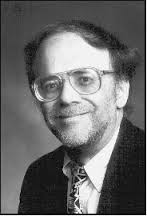The third paper of the first day of the Memory and the Reception of Jesus in Early Christianity Conference (10th-11th June 2016, St Mary’s University) was by Richard Bauckham: “The Psychology of Eyewitness Memory”. Helen Bond followed with her paper on the Gospel of John’s use of Mark (see previous post) and then there was a discussion between the two presenter and audience. It was the discussion that I found most interesting.

Richard Bauckham’s talk was indeed about the psychology of eyewitness memory and with little in the way of specific applications to biblical studies. His primary concern appeared to be to assure the audience that though one often hears how unreliable our memories are, including how unreliable eyewitness testimony so often can be in courtroom situations, nonetheless, when it comes to the sort of episodic memory we are talking about when we think of Jesus’ followers, memories are generally pretty sound for most purposes.
Events that are remembered well are those that
- are unique or unusual
- are consequential, salient
- involve us emotionally
And of course such memories are cemented in our brains the more often we rehearse them.
Very broadly we can speak of three types of memory: procedural, semantic or conceptual, and episodic.
- Procedural memory refers to remembering how to ride a bike, etc.
- Semantic or conceptual memory refers to remembering concepts, book learning, etc.
- Episodic memory refers to events that happen to us, the stuff that makes up major events in our lives.
It is the third type of memory that we are addressing when discussing gospel narratives and their eyewitness source material. That type of memory is more stable than the other two. If you are injured in a car crash you are not likely to think back years later and wonder if your injuries resulted from falling off a mountain.
Many stories highlighting the unreliability of memory derive from laboratory conditions and involve semantic or conceptual memory exercises. There is little real-life relationship to these findings. You life-situations are not so vulnerable to forgetting major or unusual events in your life.
All of that makes sense to me. But of course it does not address directly the reliability of the Gospels. For that question Bauckham referred occasionally to his book Jesus and the Eyewitnesses.
The Discussion — and Tough Questions
I should say that I considered them tough and I thought the answers were very slight, as if they had no solid response at all. But that may just be my bias so I have copied the discussion below for you to see for yourself. Continue reading “The Psychology of Eyewitness Memory And What’s This All About Anyway?”
